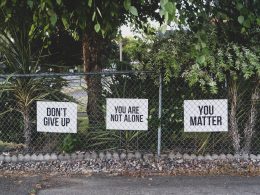Relaxing after a difficult day can be hard, especially when we’re surrounded by technology, living in an ‘always-on’ culture, and have a million tasks that need to be completed. However, switching off from work – whatever type of work that may be – is vital for our wellbeing.
Technology and internet usage can have both positive and negative impacts, but we now live in a world where information and services are available at the touch of a button 24/7, and we can connect and communicate with anyone, anywhere, at any time. This kind of connectivity can make for a much more productive working day, but when our phones are always within reach and switched on, how do we switch off?
Do not disturb
One of the best ways to make sure work stays at work is to mute any work-related notifications. It’s easy enough to promise yourself you won’t check emails outside of hours, but it becomes a much more difficult task when those notifications start popping up on your home screen.
It’s also worth limiting blue-screen usage as much as possible. If you’ve spent the day staring at a screen, give your eyes a rest! Unplug that laptop and throw your phone onto ‘do not disturb’ mode!
Create a post-work comfort ritual
It helps your mind to set boundaries if you get into ‘home-mode’ from the moment you walk through the door. Getting changed out of your work clothes and into your ‘comfies’ helps to create a psychological association that it’s time to relax and unwind with a nice cup of tea in one of your favourite mugs.
Sometimes, we’re mentally exhausted at the end of the day but not physically tired. It’s really important to acknowledge the difference so that we don’t struggle to sleep when it comes to going to bed. If you find yourself not being physically tired, an activity that involves movement – like going for a walk or playing in the garden with the kids or a pet – is the best way to help us take our minds off the hectic day to day.
Home isn’t a place, it’s a feeling
We spend so many of our non-working hours at home, so it’s important to not add to the stress that work can bring. You can do this by creating an environment that is soothing for the mind and comfortable for the body. Research shows that clutter can add to anxiety and stress levels, so keeping a decluttered and serene space in your home makes it easier for those work stresses to melt away after a long day in the office.
Even just the thought of coming home and having to clean can add to stress levels and make it difficult to unwind during the evening. If possible, it’s best to keep the cleaning and tidying tasks to your days off and keep on top of things little and often. When something as simple as decluttering can have an enormous positive impact on our mental health, it’s a no-brainer!
Eat well
Maybe you ate at your desk again or maybe you didn’t get a real break and the chance to eat at all? But going home hungry and diving into a bag of crisps and reaching for a bottle of wine can actually affect how well you sleep!
There’s nothing wrong with a savoured glass of wine after a tough day, but make sure you’re accompanying it with a nourishing meal. Why not grab some of your favourite ingredients and make an activity of cooking a healthy wholesome meal to unwind, relish in the smells and the tastes, and take some enjoyment from the process? Fresh bolognese, anyone?
The ‘always-on’ culture is something that isn’t going away any time soon, and although there are positives to living in a more connected world, it’s essential to know when to disconnect and make sure your mental wellbeing is prioritised. One of the most effective ways of leaving stress in the office is to concentrate on making your personal life comforting so that your mind can really enjoy being in the present!
Sources
https://ap.themyersbriggs.com/content/Type_and_the_always_on_culture__TheMyersBriggsCo_2019.pdf
https://www.cathkidston.com/en-gb/home/cook-and-dine/mugs/









